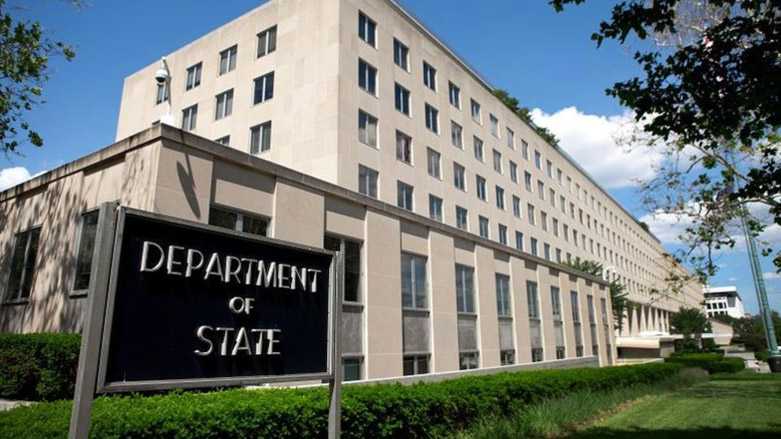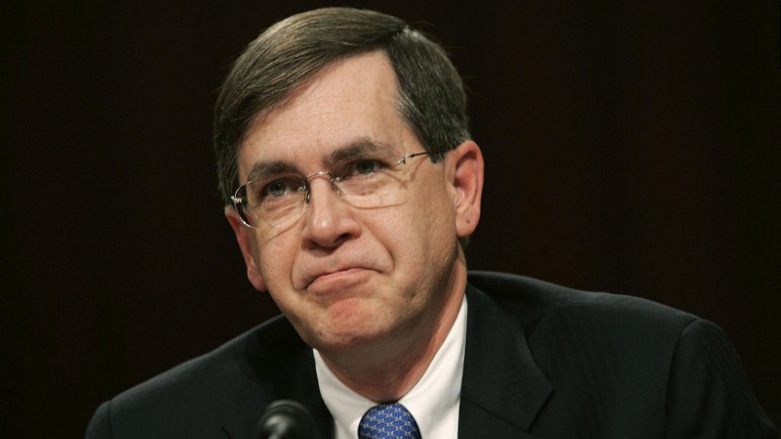Bush 43 aide reported to head Middle East Bureau at State Department

WASHINGTON DC, United States (Kurdistan 24) – The Trump administration will reportedly choose David Schenker to head the State Department’s Bureau of Near Eastern Affairs.
Schenker, who heads the Program on Arab Politics at The Washington Institute for Near East Policy, is to be nominated for the position of Assistant Secretary for Near Eastern Affairs, BuzzFeed News reported.
Schenker will have to be confirmed by the US Senate before assuming the position. The post has been vacant since January.
During the presidency of George W. Bush, Schenker served in the Pentagon in the Office of the Secretary of Defense as Levant country director. He has spent a career focused on the Middle East and is a fluent Arabic speaker, but does not have the pro-Arab bias of many with that background.
The Washington Institute was founded in 1985 with an eye on countering the pro-Arab orientation of many Washington DC think tanks focused on the Middle East. A lot has changed in the 30 years since, but the institute retains a reputation as sympathetic to Israel.
Schenker’s appointment would be very good news for the Kurdistan Region. In the absence of an Assistant Secretary for Near Eastern Affairs, Brett McGurk, Special Presidential Envoy for the Global Coalition to Counter the Islamic State (IS), assumed responsibility for Iraq—although, he is a lawyer with limited experience of the Middle East.
Michael Pregent, an Iraq expert at the Hudson Institute, told Kurdistan 24 that McGurk is seen in Baghdad as having a pro-Shia bias. A Turkish journalist told Kurdistan 24 that Ankara’s perception of him is similar.
Rep. Duncan Hunter (R-California) strongly criticized the US position on Iraq and the Kurds in a press conference last fall.
Hunter identified McGurk as the figure most responsible for a policy that tilted so much toward Iraq (and its ally in Tehran) that it gave Baghdad free rein to assault the Kurds.
At one point, the Washington rumor mill was suggesting McGurk would become the next Assistant Secretary for Near Eastern Affairs, but Kurdistan 24 was told he is no longer in the running for that position.
BuzzFeed cited a senior Trump administration official who said, “Don’t expect an announcement today or tomorrow, but [Schenker] is expected to be the nominee.”
Assuming he does get the position, Schenker will have to deal with the problematic situation in Iraq that US policy has helped create.
Washington has based its entire position in Iraq on Prime Minister Haider al Abadi’s winning the elections in May. To help Abadi, it has turned a blind eye to the abuses that he has imposed on the Kurdistan Region, including banning international flights to the two airports, arbitrarily cutting the Kurdish share of the budget, and failing to pay salaries of government employees.
Other countries and institutions—including France, Germany, and the International Monetary Fund—have publicly criticized Abadi for such actions, but the US has remained silent.
But, what if Abadi doesn’t win the elections? Or, if he does win, but cannot secure a continued US presence in Iraq? Perhaps, because the Iraqi parliament demands that US forces leave the country, as some MPs have threatened to do?
If so, then this cynical policy—along with the betrayal of a long-time American ally, as well as American values—will have all been in vain.
Such are the thorny issues that now bedevil US policy toward Iraq and the Kurds.
Editing by Karzan Sulaivany

